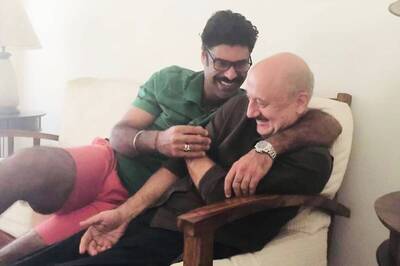
views
(The author Sanjeeva Shivesh is the Chief Executive Officer of The Entrepreneurship School in Gurgaon. He is a former civil servant and strategy consultant turned entrepreneur interested in public affairs, economics and nurturing startup)
The NJAC judgement of Supreme Court is disappointing, to say the least. It’s stand that NJAC violates the basic structure of the Constitution as it interferes with the independence of the judiciary enshrined in the Constitution. However, Honourable judges fail to see that the ‘collegium' system violates the democratic values which form the basis of Indian Constitution.
Various points have been raised by ordinary citizens in favour of and against the NJAC. The most common has been that can we trust our politicians to act impartially. The argument for citizen of India is simple. It trusts Indian polity as much as it trust Supreme Court. Both are prone to mistakes. However, I think polity has more self correcting mechanisms and checks and balances than the judiciary.
The problem is Judges appointing Judges. Favouritism and corruption in judiciary is not unheard of. Hence this long battle to restore balance between executive and judiciary. The proposed NJAC is an appointments commission comprising of 6 members - three from Supreme Court (Chief Justice and two senior most judges of SC), one executive (the Union Law Minister) and two eminent persons. Prima facie, this is more balanced than any sort of collegium solely comprising of judges. However, this has been debated at length.
In this scheme, what is really debatable is who could be these two 'eminent' persons. Even there, NJAC said, they are persons selected by a committee comprising Chief Justice of India, Prime Minister and Leader of Opposition (LoP) in the Lok Sabha. Where is the problem really?
Now let us see the real problem: Principles of natural justice says no one can be judge in his own cause. Supreme Court, through the judgements of 1993 and 1998 usurped the powers to appoint judges. Those were the days when all governments were run on the crutches of coalition partner. Weak governments could not take on the Supreme Court. The balance tilted.
NJAC is law in making for several years now. It has takes into account the views of all parties at LS, RS, State Legislatures. Approximately, 4000 plus publicly elected representatives.
SC cannot have a good reason to quash this, except impose its blatant will on the people of India for retaining it "usurped power" to appoint judges. It is tyranny of the unelected. To quote the latest judgement "99th Constitution Amendment Act reduces the Chief Justice of India, despite being the head of the judiciary, to one of six in the NJAC making a recommendation to the President thereby denuding him/her of conventional, historical and legitimate constitutional significance”.
I fail to see which judicial independence is compromised by curtailing the power of judges to appoint judges. Judicial independence at best is about adjudication with impartiality, freedom from budget allocations, freedom from criticism and a near impossible process of removal of judges. This does not mean abrogating the powers to appoint themselves. The present judgement has gone ahead to conclude that appointment of judges by judges is a basic structure of the Constitution. That’s not convincing enough.
The fact that SC has chosen to call for a consultation on 3rd Nov for collegium system only indicates the problems it has. But, can 20-50 'unelected advocates' overturn the 'public will'? If they really want and are serious, they should first get elected and come to Parliament. That's the only place for making a law.
A part of democracy dies today.



















Comments
0 comment